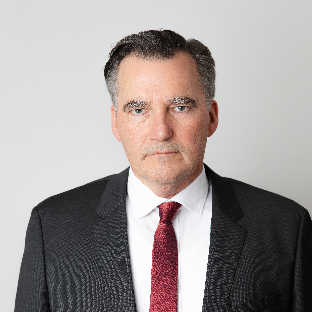Welcome to the March edition of the ASQA Update

ASQA uses a wide range of regulatory activities to ensure quality VET. The full breadth of our activities spans functions relating to promoting and encouraging continuous improvement of a provider’s capacity to deliver quality VET, compliance and enforcement, where poor delivery and unacceptable practices are identified, to functions relating to collecting, analysing and reporting information about VET.
Further to sharing our insights from ASQA’s Strategic Review of Online Learning last month, I am pleased to share with you this month information about the range of our regulatory activities and performance. We will start sharing this information more regularly from April/May.
As we enhance the way we use information and feedback from a broad range of sources we are ensuring our education, monitoring, compliance and enforcement activities make full use of intelligence and data so that the community can be confident that our activities are based on analysis of risk to quality VET.
We tailor strategies selecting the most effective regulatory tools, used separately or in combination, to respond to the issues identified. The totality of all ASQA’s regulatory activities reflects this risk-based approach and gives us a better overall understanding of sector performance. The balance of activity across our regulatory treatments may fluctuate each year, depending on the nature of the risks being addressed.
Here is a snapshot – of the 220 performance assessments completed during July to December 2022, 125 were initial registration applications and 95 related to existing providers.
Of the 95 performance assessments of providers, 76 providers were found to not meet the quality threshold and further action was required. This high level of poor practices identified should not be extrapolated to the sector but rather, reflects the effectiveness of ASQA’s improved methods for identifying and detecting risk.
Twenty-seven of these providers entered into formal agreements with ASQA to rectify the issues identified and approximately half have returned to compliance. Our performance assessments provide meaningful feedback, enabling providers to address areas for improvement and to take responsibility for monitoring, evaluation and continuous improvement of the outcomes they are achieving. This is a good outcome for students and the sector.
During this period, we also engaged with 95 providers that either entered hibernation or made changes to their mode of delivery during the pandemic, and we continue to closely monitor a further 21. We have been conducting surveillance activities of a variety of providers, including to monitor ESOS providers’ return to compliance with the National Code and ELICOS Standards by 30 June 2023. Where we identify concerning practices outside our remit, we share this information with other government agencies.
When a provider does not demonstrate their commitment or capability to deliver quality, or to make the necessary changes in response to identified poor practice, we respond adeptly and take effective action applying a range of compliance and enforcement activities proportionate to the level of harm, to enforce compliance. We have recently:
- suspended the registration of 7 providers
- issued notices of intent to cancel the registration of 7 providers, with final decisions pending
- rejected applications to renew registration for 3 providers.
It is the separation of our compliance management from performance assessment activities that allows ASQA to work more closely with providers in their return to compliance. This improved approach means there is a period where our reporting doesn’t support a simplified comparison between successive years. You will see greater information about the full range of our compliance and monitoring activities including what this means for sector performance in the coming months.
We continue to use broad reaching education as a primary regulatory tool, providing information and feedback that enables providers to increase their levels of capability and commitment to quality improvement. This approach promotes provider capability for self-assurance to mitigate risk and continuously improve VET outcomes.
Thank you for your patience as we continue to work through a backlog in applications and enquiries. The volume of applications from prospective providers and for registration renewal and change of scope has increased significantly over the past year. We are working hard to improve our processes and response times in these areas while continuing to focus on thorough and effective regulatory practice.
Stay safe and well,
In this edition
Annual Declaration on Compliance (ADC) – 17 April 2023
Amendments to course accreditation forms
RTO and ESOS Obligations Checklists – Published WITH REVISION
Top three frequently asked asqanet questions
Spotlight On – Marketing and Advertising launching soon
ESOS Return to Compliance for face to face training
and more








